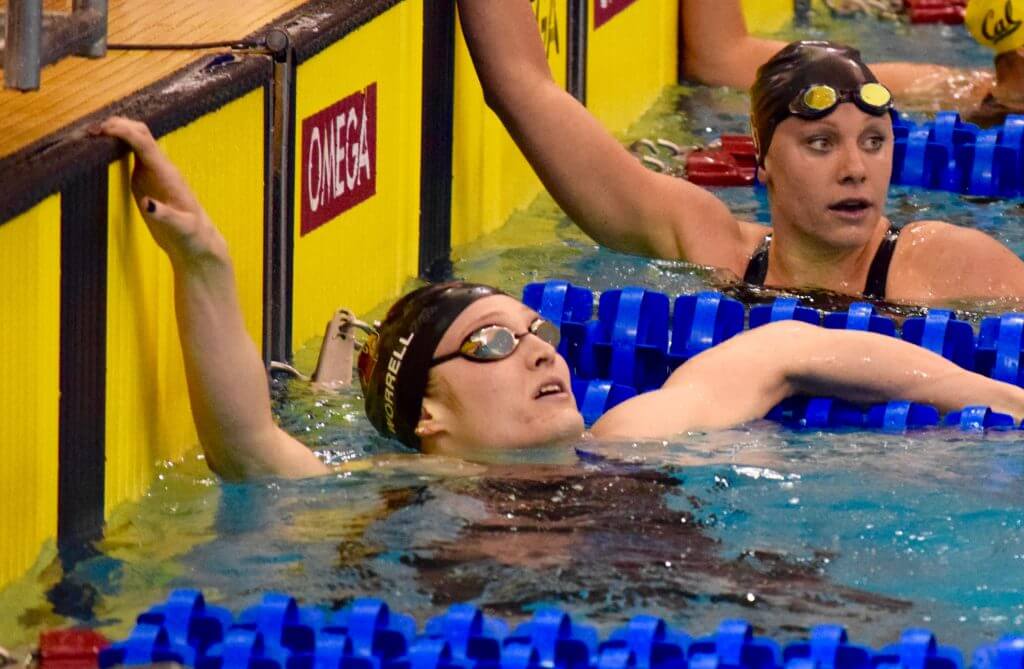What Is and How Neural Fatigue Affects your Swimming Performance

What Is and How Neural Fatigue Affects your Swimming Performance
By Vanessa Steigauf, Swimming World College Intern
Heavy arms and legs after a hard practice is something all swimmers know too well. As a normal reaction to exercise, our energy supply is empty and lactic acid probably accumulates in our muscles. That might not be our favorite feeling but at least we can be satisfied with our hard work. Besides muscular fatigue, there is a kind of exhaustion that can impact your swimming performance while you don’t even feel tired.
Neural Fatigue – When The Nervous System Gets Tired
Neural fatigue describes this state and it predominantly affects your nervous system and its connections to the muscles. The University of Queensland explains neural fatigue as an “involuntary reduction in voluntary action.” Simplified, this means that even if you don’t feel tired and would want to go all out, your body doesn’t cooperate. It’s like your body is a sailboat and your nervous system is the sailor. The boat can be in great condition. But if the sailor is tired you won’t go as fast as you technically could. You won’t be able to raise the sail fast and you won’t tack very efficiently. Everything will be slower than with a sailor who’s in good shape. Just like the sailboat, your body can be in perfect shape. But if your nervous system is exhausted, your brain can’t connect with the muscles very well and you swim slow.
Scientists are still trying to figure out how neural fatigue works, what causes it might have, and what athletes can do to prevent it. Common signs of neural fatigue are slower reflexes, impaired muscle function, and loss of motivation and appetite. Some of these symptoms suggest that the mechanisms of neural fatigue might have something to do with neurotransmitter concentrations at the synapses. Neurotransmitters are chemicals that are excreted by neurons to cause an effect in an adjacent neuron or muscle. If those transmitters aren’t where they need to be that will cause symptoms like the ones observed in neural fatigue. Your brain might be ready to send signals and your muscles would be in perfect shape to perform movements. But the middle part, your nervous system, isn’t quite ready to transmit those signals.
Neural Fatigue in Sprints
Neural fatigue mostly occurs for events with high force production. For swimming that means you’re prone to having an exhausted nervous system after many fast sprints. You might feel like you recover quickly. But your body needs some extra time to replenish neurotransmitters so you’re actually ready to go full speed again. Scientists have found that it can take up to 10 times longer to recover from neural fatigue than from muscular fatigue.
How Prevent Neural Fatigue
One way to prevent this sneaky kind of exhaustion is a proper warm-down. Active recovery as well as overdistance training reduce the chances of exhausting your nervous system to a point where you don’t function normally anymore. For that reason, another important rule is to take easy days as what they are: easy. Don’t overachieve on a set that should be in low heart rate zones. It might feel good for the moment but the risk of being permanently tired and out of shape afterwards is very high.
In practice you should therefore listen to your body. Even if you can’t directly feel neural fatigue, there are signs such as reduced reaction times or slower turns that tell you when you might want to slow down. That doesn’t mean you should always go a little slower than expected to prevent exhaustion. Practices should make you a little extra tired some days so you can thrive even more on others. As always, it is key to communicate with your coaches. Make sure everyone understands the training load for every practice. Overdistance training at the beginning of a season can also help prevent neural fatigue later on during the season. It makes your cardiovascular system more productive and your body learns how to deal with greater training loads. That way, your nervous system can bear higher intensities and you are ready for those really intense sessions later in the season.
The Right Technique for Your Inner Sailor
Another way to train your nervous system at the beginning of the season is your technique. You don’t want to end up with a sailor that realizes they don’t know the right movements for a sailing tack mid-season. Make sure to pay close attention to technique. A strong catch and pull, and finely tuned coordination during the very first practices of a season help with that.
All those little tips and tricks will help you prepare your inner sailor for those rough practices and races. With reduced risk of neural fatigue, you will have better performances and an easier time dealing with exhausting weeks in the pool.
All commentaries are the opinion of the author and do not necessarily reflect the views of Swimming World Magazine nor its staff.




Is there any science to back any of this up, particularly “Active recovery as well as overdistance training reduce the chances of exhausting your nervous system to a point where you don’t function normally anymore.” ?